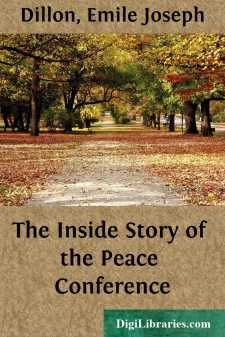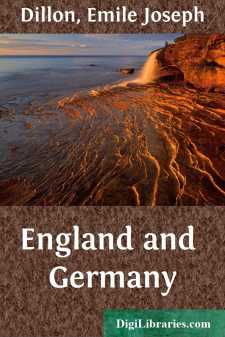Categories
- Antiques & Collectibles 13
- Architecture 36
- Art 48
- Bibles 22
- Biography & Autobiography 813
- Body, Mind & Spirit 142
- Business & Economics 28
- Children's Books 17
- Children's Fiction 14
- Computers 4
- Cooking 94
- Crafts & Hobbies 4
- Drama 346
- Education 46
- Family & Relationships 57
- Fiction 11829
- Games 19
- Gardening 17
- Health & Fitness 34
- History 1377
- House & Home 1
- Humor 147
- Juvenile Fiction 1873
- Juvenile Nonfiction 202
- Language Arts & Disciplines 88
- Law 16
- Literary Collections 686
- Literary Criticism 179
- Mathematics 13
- Medical 41
- Music 40
- Nature 179
- Non-Classifiable 1768
- Performing Arts 7
- Periodicals 1453
- Philosophy 64
- Photography 2
- Poetry 896
- Political Science 203
- Psychology 42
- Reference 154
- Religion 513
- Science 126
- Self-Help 84
- Social Science 81
- Sports & Recreation 34
- Study Aids 3
- Technology & Engineering 59
- Transportation 23
- Travel 463
- True Crime 29
The Inside Story of the Peace Conference
Categories:
Description:
Excerpt
I
The choice of Paris for the historic Peace Conference was an afterthought. The Anglo-Saxon governments first favored a neutral country as the most appropriate meeting-ground for the world's peace-makers. Holland was mentioned only to be eliminated without discussion, so obvious and decisive were the objections. French Switzerland came next in order, was actually fixed upon, and for a time held the field. Lausanne was the city first suggested and nearly chosen. There was a good deal to be said for it on its own merits, and in its suburb, Ouchy, the treaty had been drawn up which terminated the war between Italy and Turkey. But misgivings were expressed as to its capacity to receive and entertain the formidable peace armies without whose co-operation the machinery for stopping all wars could not well be fabricated. At last Geneva was fixed upon, and so certain were influential delegates of the ratification of their choice by all the Allies, that I felt justified in telegraphing to Geneva to have a house hired for six months in that picturesque city.
But the influential delegates had reckoned without the French, who in these matters were far and away the most influential. Was it not in the Hall of Mirrors at Versailles, they asked, that Teuton militarism had received its most powerful impulse? And did not poetic justice, which was never so needed as in these evil days, ordain that the chartered destroyer who had first seen the light of day in that hall should also be destroyed there? Was this not in accordance with the eternal fitness of things? Whereupon the matter-of-fact Anglo-Saxon mind, unable to withstand the force of this argument and accustomed to give way on secondary matters, assented, and Paris was accordingly fixed upon....
"Paris herself again," tourists remarked, who had not been there since the fateful month when hostilities began—meaning that something of the wealth and luxury of bygone days was venturing to display itself anew as an afterglow of the epoch whose sun was setting behind banks of thunder-clouds. And there was a grain of truth in the remark. The Ville Lumière was crowded as it never had been before. But it was mostly strangers who were within her gates. In the throng of Anglo-Saxon warriors and cosmopolitan peace-lovers following the trailing skirts of destiny, one might with an effort discover a Parisian now and again. But they were few and far between.
They and their principal European guests made some feeble attempts to vie with the Vienna of 1814-15 in elegance and taste if not in pomp and splendor. But the general effect was marred by the element of the nouveaux-riches and nouveaux-pauvres which was prominent, if not predominant. A few of the great and would-be great ladies outbade one another in the effort to renew the luxury and revive the grace of the past. But the atmosphere was numbing, their exertions half-hearted, and the smile of youth and beauty was cold like the sheen of winter ice....




